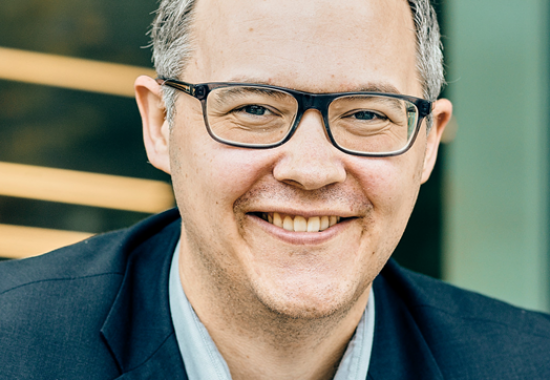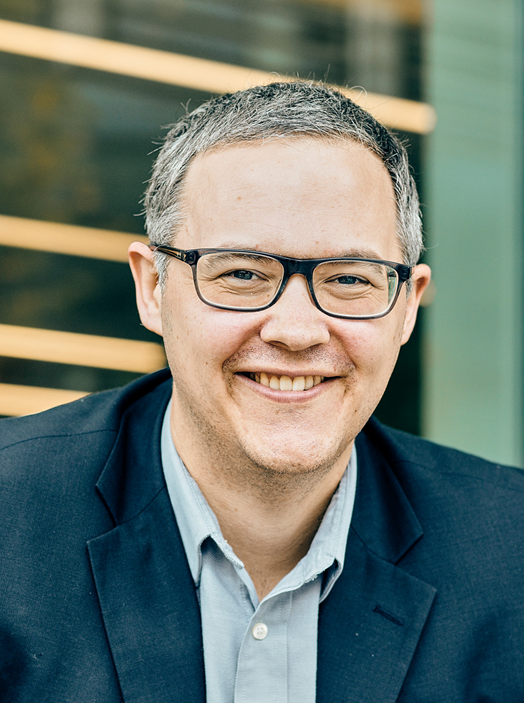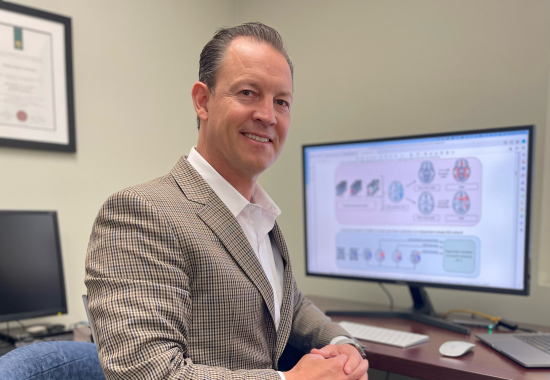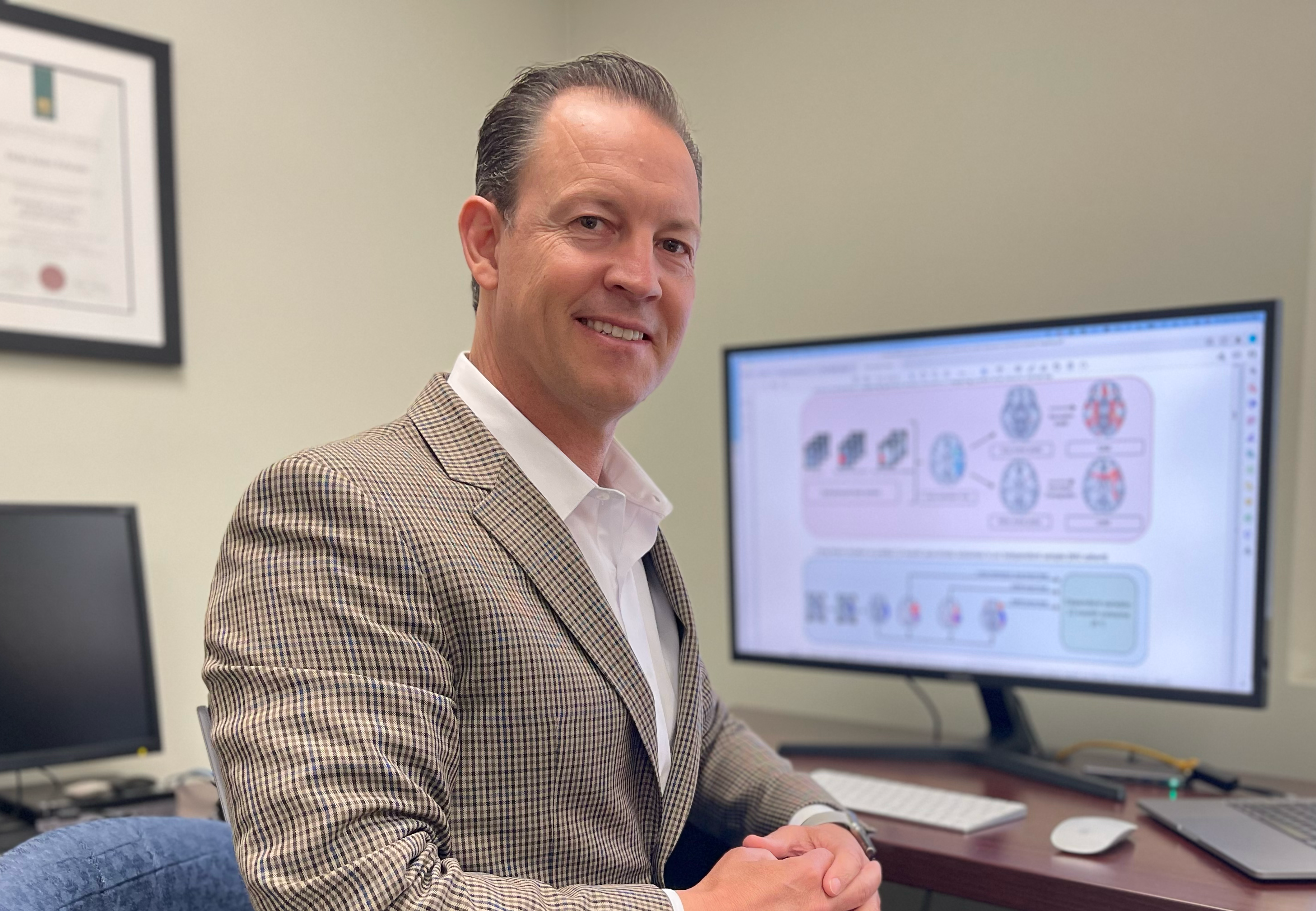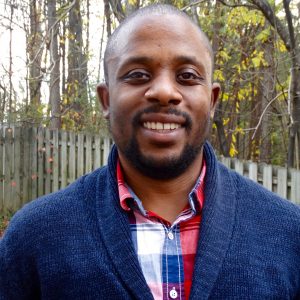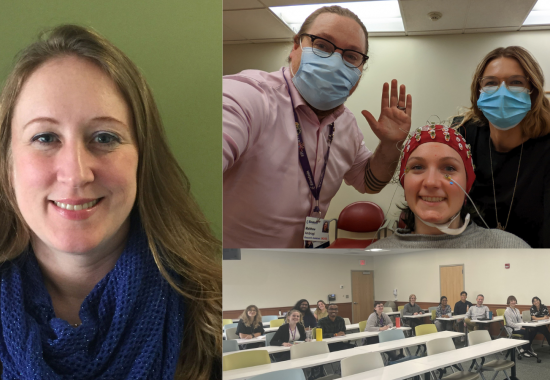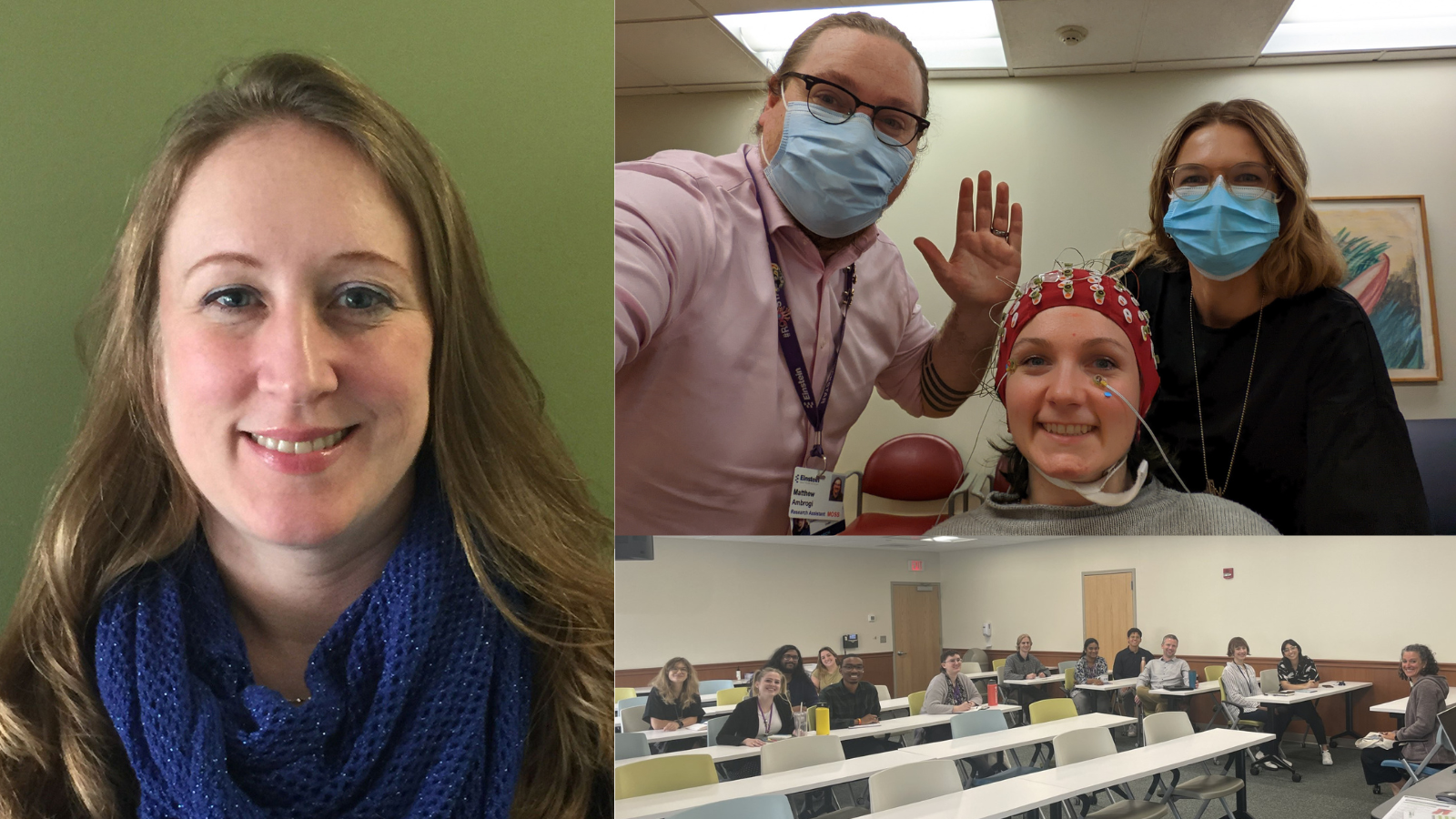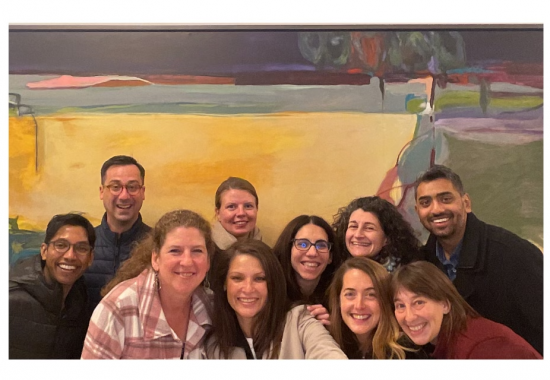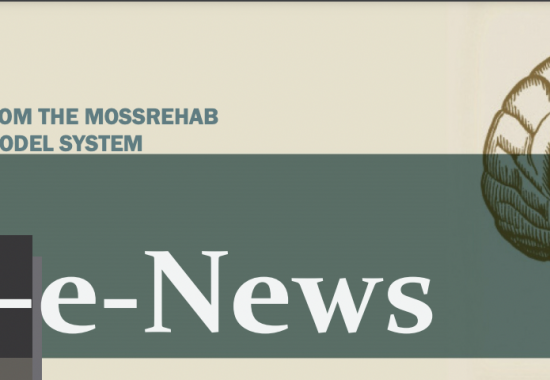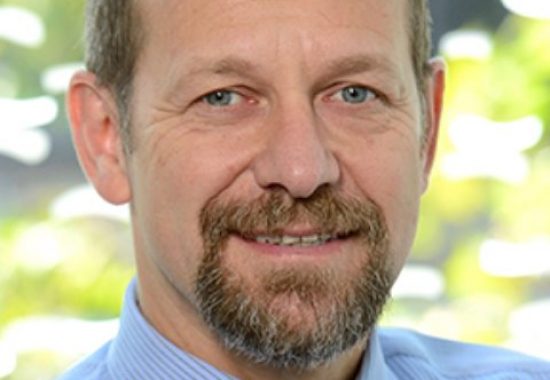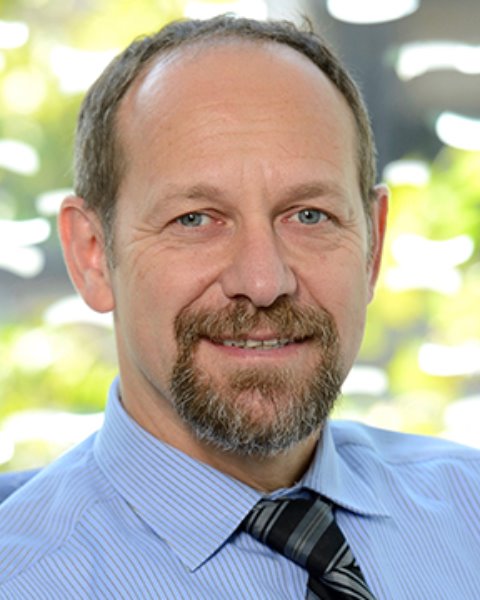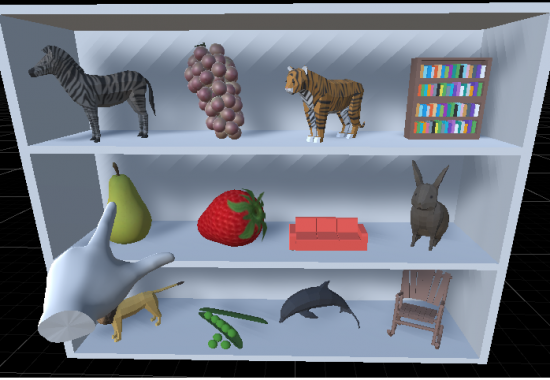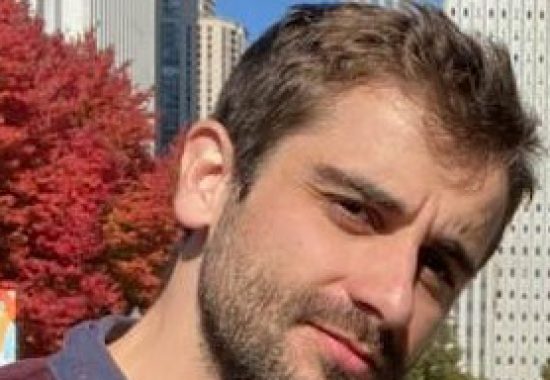Moss Rehabilitation Research Institute (MRRI) is dedicated to training the next generation of researchers in neuroscience and neurorehabilitation, and the Institute is thrilled to continue to follow the outstanding careers and achievements of former trainees. From 2014-2016, John Medaglia, PhD, completed a joint postdoctoral fellowship at MRRI and the University of Pennsylvania as part of the MRRI/Penn T32 Postdoctoral Training Program. Continue Reading
Author: Sean Roberts
Dr. Edwards Receives Grant to Study Potential Treatment for Spinal Cord Injury
MRRI is pleased to announce that Dylan Edwards, PhD, has been awarded a competitive grant from the Pennsylvania State Department of Health to conduct a translational research study using noninvasive brain stimulation to promote recovery in adults with spinal cord injury. For this study, Dr. Edwards has compiled a multidisciplinary team including MossRehab Clinicians, Thomas Jefferson University Biostatistics, and other leading basic and clinical researchers in the U.S. and abroad.
MRRI Welcomes Two New Scientific Advisory Board Members
- Lewis Wheaton, PhD
- Jennifer Bogner, PhD, ABPP, FACRM
MRRI maintains an active Scientific Advisory Board composed of diverse experts in relevant areas of neuroscience, neurorehabilitation, and research strategy. This Board provides valuable feedback on MRRI’s scientific research, as well as the Institute’s operations. This month, MRRI is excited to welcome two new members to the Scientific Advisory Board. Jennifer Bogner, PhD, ABPP, FACRM, from The Ohio State University and Lewis Wheaton, PhD, from Georgia Tech have recently accepted their invitations to join the Board, bringing the total number of Board Members up to seven.
Dr. Erica Middleton Receives NIH Grant to Further Study Retrieval Practice in Aphasia
MRRI is thrilled to announce that Erica Middleton, PhD, has been awarded a five-year R01 grant from the National Institute On Deafness And Other Communication Disorders of the National Institutes of Health to continue her research developing a theory of learning for aphasia rehabilitation that leverages retrieval practice.
Moss Conducts Collaborative Research with other TBI Model Systems Sites
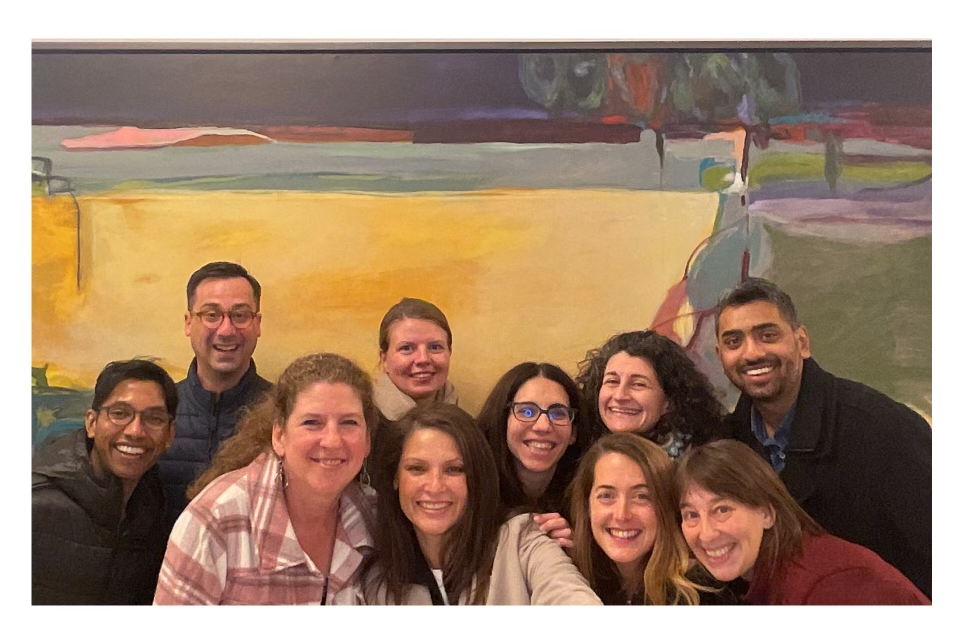 Every Traumatic Brain Injury (TBI) Model System cycle, each funded center proposes a multi-center research project to further our understanding of TBI outcomes and treatments. In the current cycle, Moss is enthusiastic to collaborate with our Model Systems colleagues on three exciting projects. Continue Reading
Every Traumatic Brain Injury (TBI) Model System cycle, each funded center proposes a multi-center research project to further our understanding of TBI outcomes and treatments. In the current cycle, Moss is enthusiastic to collaborate with our Model Systems colleagues on three exciting projects. Continue Reading
Don’t Miss The Latest Edition of the MossRehab TBI Model System’s Brain E-News
The MossRehab Traumatic Brain Injury (TBI) Model System team is pleased to provide news and updates in this new edition of Brain E-News. In the Spring 2023 edition of the newsletter, we introduce you to Lauren Krasucki, PT, DPT, MPH, CPH, who has joined the team as a Lab Manager, as well as Emma Stern, who recently started a position as a research assistant. This edition also shares research updates, including an article discussing new studies examining the impacts of the COVID-19 pandemic on people with brain injuries and some of the exciting collaborative projects that MRRI scientists are working on with researchers from other TBI Model System centers.
Click here to read the full Spring 2022 Edition of Brain E-News.
Meet MRRI Scientific Advisory Board Member Dr. Pablo Celnik
Moss Rehabilitation Research Institute is dedicated to conducting rigorous, high-quality science from theory-driven research to clinical treatments in neurorehabilitation. To help ensure the Institute continues to operate at the cutting edge of the field, MRRI maintains a Scientific Advisory Board composed of experts spanning the Institute’s research foci. Pablo Celnik, MD, Director of the Department of Physical Medicine and Rehabilitation and Professor of Physical Medicine and Rehabilitation at Johns Hopkins Medicine, has been part of MRRI’s Scientific Advisory Board since the Board was created. Learn more about Dr. Celnik and his role on the Board in the interview below.
Virtual Reality Assessment of Arm Non-Use After Stroke
After a stroke, 80% of survivors show reduced use of the weaker arm during their activities of daily living. While conventional wisdom and previous research has attributed this reduced arm use to physical abilities (e.g., weakness) of the more affected arm, recent work is beginning to reveal a more complex and perplexing story.
New Research by Scientists at MRRI and UCL Investigates the Impacts of Gesture on Naming Ability in People with Aphasia
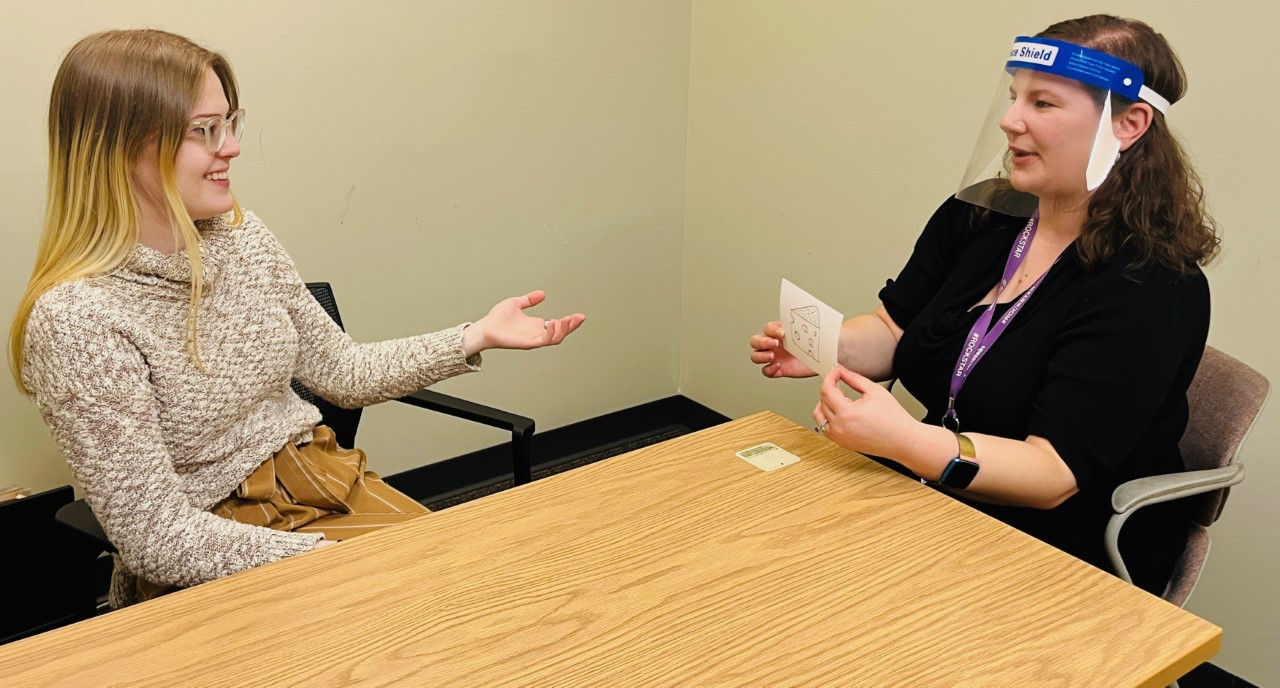
Communication is more than just talking. In a face-to-face conversation, we also use gestures and facial expressions alongside speech to convey information. For example, the concept of waving your hand to greet someone can be expressed by saying the word “waving” or by performing the gesture itself. These concepts stored in long-term memory are thought to be shared across networks of brain areas responsible for speech and gesture. Gestures may also support word-finding: some studies have shown that when people struggle to retrieve words, producing a corresponding gesture also triggers production of the word. Other studies, however, have shown no effect of gesture on word-finding.
For individuals with aphasia, a language disorder that is common after a stroke or brain injury, word-finding difficulties are frequent. Because of this, some types of speech-language therapy encourage individuals with aphasia to rely on gesture to help them retrieve words more easily. However, an alternative approach known as constraint-induced language therapy requires individuals to rely on speech alone and restricts the use of gesture. While some individuals with aphasia benefit from constraint-induced language therapy, others benefit from therapy that allows for the use of gesture. It is unclear why different individuals with aphasia benefit from different types of therapy.
Approximately half of individuals with aphasia following a stroke also suffer from limb apraxia, a disorder which results in the impaired production of gestures and other skilled actions. One possibility is that individuals with limb apraxia will benefit less from the observation and use of gesture during speech-language therapy. To investigate this possibility, researchers from Moss Rehabilitation Research Institute (MRRI) and University College London (UCL) Amy Lebkuecher, PhD, Laurel Buxbaum, PsyD, Isobel Chick, MSc, and Gabriella Vigliocco, PhD, are conducting a study about the effect of gesture on naming ability in individuals with aphasia after stroke. In this experiment, the researchers are using gamified tasks, specifically “Go Fish” and “Heads Up”, to evaluate naming ability in an engaging and naturalistic context. Individuals with aphasia participating in this experiment are asked to complete these gamified tasks in two conditions: one that permits the use of gesture, and one that constrains it. In the condition where use of gesture is permitted, participants also observe the researcher performing gestures that are conceptually related to the objects and actions being named or described. In the condition where the use of gesture is constrained, both participant and researcher are not allowed to use gestures to communicate.
The researchers will compare participants’ performance on the gamified tasks across these conditions to determine whether the ability to name objects and actions improves when individuals with aphasia are allowed to use and observe meaningful, co-speech gestures. Additionally, the researchers will examine whether the benefit of gesture differs for individuals with and without limb apraxia, and explore whether there are other individual differences that affect whether gestures support word retrieval in aphasia. Data collection for this study is currently in progress. This research aims to advance our scientific understanding of the connection between speech and gesture in the brain. From a clinical perspective, the findings of this study may also help identify which individuals with aphasia are likely to benefit from the use of gestures during speech-language therapy, potentially leading to more personalized therapy.
Interview with MRRI Postdoc Dr. Simon Thibault
Moss Rehabilitation Research Institute (MRRI) was pleased to welcome Simon Thibault, PhD, in January of 2022. Since joining the Institute, Dr. Thibault has been working with Institute Scientists Aaron Wong, PhD, and Laurel Buxbaum, PsyD, to further his training and his scientific research. In this interview, Dr. Thibault shares more about his career and his work.
1) Can you tell us more about your academic background and training?
I did my studies in France with my undergraduate and postgraduate degrees in Sports and Human Movement Sciences at the University of Nantes. In Nantes, I became interested in research quite early, and I was at that time mentored by Dr. Thibault Deschamps. Afterwards, I did a 5-month postgraduate internship at the University of Queensland in Australia in Dr. Timothy Carroll’s lab which focuses on exercise science and motor control. My early research projects were related to the interaction between cognition and the motor system, or more general motor control projects. After this internship, I started my PhD at the University of Lyon under the supervision of Dr. Claudio Brozzoli and Dr. Alice Roy. During my PhD, I continued investigating interactions between cognition and the motor system, particularly focusing on the interaction between tool-use and language. I started my postdoc at MRRI about one year ago under the supervision of Dr. Aaron Wong and Dr. Laurel Buxbaum, and my current research projects are examining tool-use impairments in patients with neurological conditions such as stroke.
2) What attracted you to science?
I think I find science attractive because you work at the edge of current knowledge, and you can participate in extending this knowledge. I think that is the thing that excites me the most about science. Also, I like the fact that it requires me to learn and master multiple skills for various tasks, such as creating a new project from scratch, setting up a new experiment, analyzing data, and then sharing these results with the community through conferences or journal papers. More specifically, I have been particularly attracted to neuroscience because the brain is an intriguing part of our body, in which the mechanisms for many functions are still unclear. It is definitely exciting to be part of the research community trying to disentangle how this structure works.
3) Why did you choose to work at MRRI?
MRRI has given me the opportunity to pursue my main research interest in tool-use and complex motor behaviors (and how these motor functions interact with the cognitive system) by studying patients with apraxia. Apraxia occurs after a left-hemisphere cerebrovascular accident, and it impacts the actions of daily life, the use of tools, and complex motor behavior without apparent low-level sensorimotor deficits. For me, this is also a real opportunity to learn about the neuropsychological approach from experts in the field.
4) What are some of the research questions you are currently working to address?
Currently, I am working on determining what makes tools difficult to use for patients with apraxia. Dr. Wong, Dr. Buxbaum, and I think the degree to which the hand motion and tool tip motion differ makes these tools difficult to use for these patients. In parallel, I am planning to lead a project to better understand what makes it difficult for stroke patients (with or without apraxia) to perform an action sequence.
5) What have been some of the key findings of your research thus far?
During my PhD, I demonstrated that that tool-use abilities and syntactic abilities in language involved similar parts of the brain, and they reciprocally influence each other at the behavioral level. This finding has been of interest for a large community of scientists but also therapists because it introduces questions regarding whether patient populations with language or motor impairment may recover function by training the non-impaired ability (either language or motor function).
6) Can you tell us more about the impact or potential impact of your research?
Despite several years of research, apraxia is still a poorly understood deficit, and there are a lot of debates about what is really impaired in these patients and what the underlying mechanisms are. I hope my work will help to better clarify the underlying mechanisms, which could result in the development of new rehabilitation strategies to help these patients to cope with the difficulties they experience in their daily lives.
7) What is something that you have learned or hope to learn during your postdoc at MRRI?
Starting my postdoc at MRRI has been exciting and informative on many levels. First, I needed to familiarize myself with this novel environment and a new country. MRRI has a great environment for training and performing neuropsychological research thanks to the MRRI Research Registry. It has been interesting to learn more about how research is funded and conducted in the United States. Also, I was glad to gain experience working with patients. There are many considerations when conducting research with patient populations, and it is very different from working with neurotypical participants. By coming here, I hope to learn new skills, especially in grant-writing, to become a more independent researcher, as well as to gain new skills in neuroimaging analyses of patients’ data.
8) What is one of your favorite MRRI memories?
I would say the inclusion of the first patient in my study was a stressful but an exciting moment. Given some patients may have some language impairments, it is an additional challenge to make sure they can understand me with my (strong) French accent. However, most of them have been able to understand my instructions so far, and there is always a research assistant around that can help me handle more complex situations. I also have to acknowledge that I was particularly well trained by my advisors before this first patient inclusion to avoid these potentials misunderstandings.
9) What are your long-term career goals?
I would like to get a permanent research position in academia. Most likely, I will return to France for my next position, but I am open to any other interesting opportunities that may arise.
10) What do you like to do in your free time?
I am a big fan of sports, especially basketball, so I am happy to live in the U.S. where basketball is popular. I like to go to the 76ers games, and I also try to keep playing basketball at least once each week. In addition, I spend a lot of time with a group of French expats that are now my friends.

